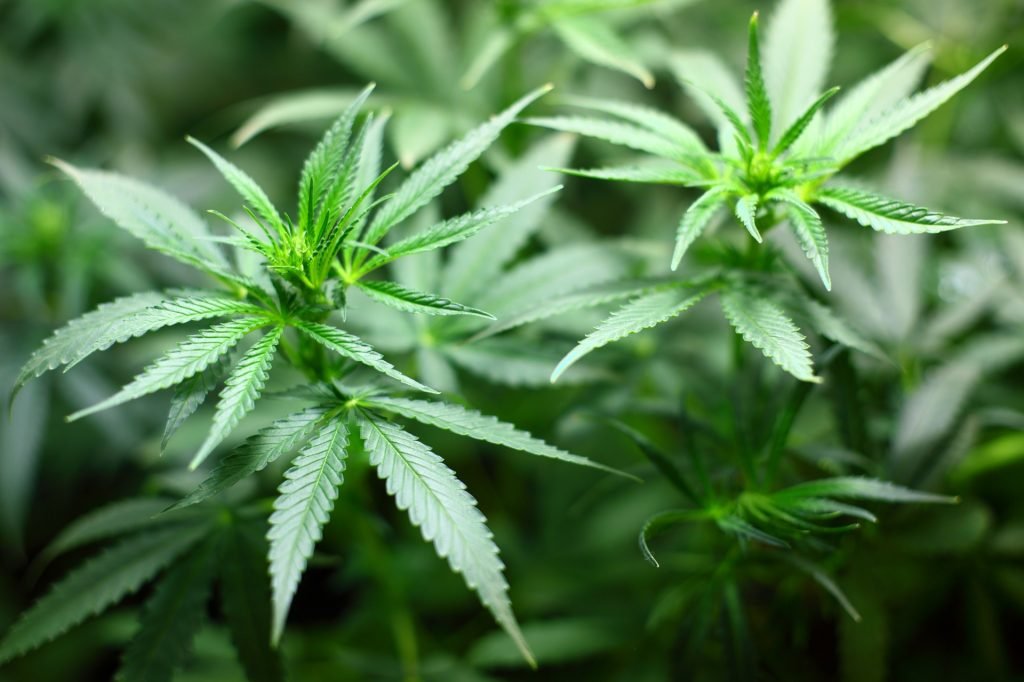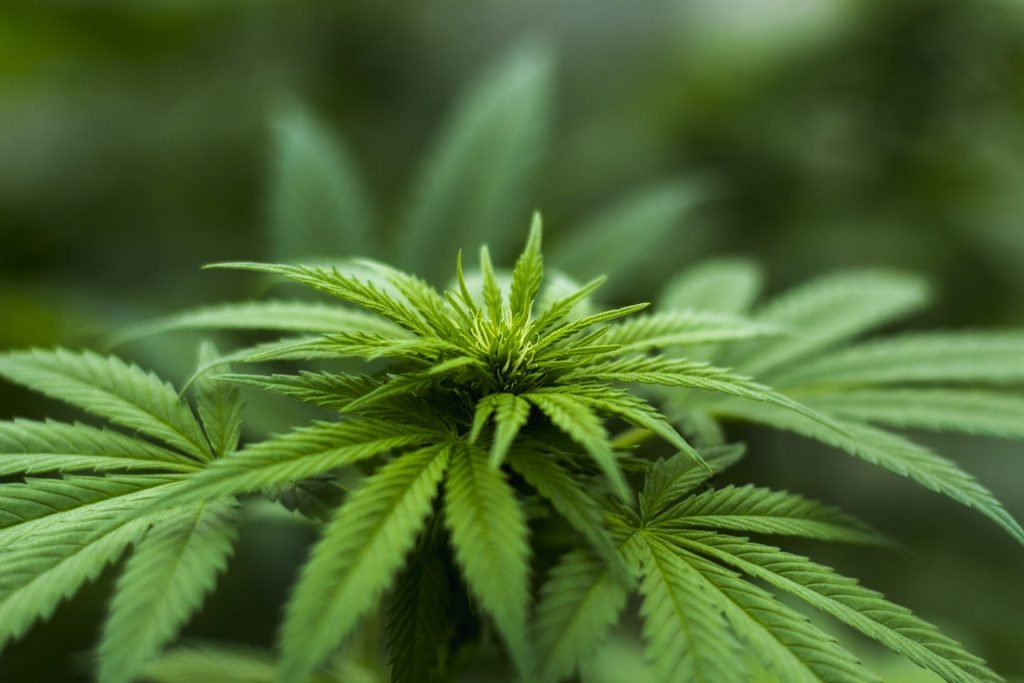
The benefits of cannabis essential oil are as extensive as those found in the plant from which it is extracted. Cannabis Sativa, like sunflower, is a plant capable of cleaning the nuclear radiation that may exist in the environment that surrounds it. There are several scientific tests that support this fact.
A group of representatives of established growers and processors, Phytotech and the Institute of Bast of Ukraine, experimented in the late 1990s with the use of industrial hemp.
The experiment was carried out near where the Chernobyl nuclear disaster occurred and where a large amount of agricultural land became unusable due to the presence of heavy metals and radiation, still persistent since the 1986 crisis.
Cannabis is an herb that grows spontaneously in nature, and that has been used for thousands of years to treat health problems. We can also find it in perfumes, soaps, candles and some foods.
Cannabis oil is a strong substance, that is why only a small amount is necessary to obtain a powerful effect on the body and mind.
The cannabis plant has its origin in Central Asia but nowadays, it is grown all over the world.
The term cannabis (commonly known as marijuana), describes a plant of the cannabis sativa species, that is grown for its potent viscous glands known as trichomes. These trichomes contain large amounts of tetrahydrocannabinol (THC), which is the most popular cannabinoid for its psychoactive properties.
Hemp oil is obtained by cold pressing its seeds, which also have many therapeutic benefits. It is a little different from cannabis oil; although both come from the same genus (cannabis) and the same species (cannabis sativa).
The term hemp, refers to a cannabis sativa plant that contains only small amounts of THC.
Hemp is a high growth plant generally used in the industry for products such as oils and ointments, as well as fiber for clothing, construction and paper, among others.
Between 1930 and 1940, Concern about the risks of marijuana abuse led to the ban on the use of cannabinoids for medical treatment in the United States and many other countries.
The cannabis plant produces psychoactive compounds in its resin, which are known as cannabinoids.
After decades, cannabinoids are considered a compound with therapeutic value, although even today, its use is still restricted.
That happens because marijuana is one of the most closely controlled substances under US federal law.

The government of the United States considers that it is a Class I drug, that is, the DEA considers that it has no medicinal value. It is at the same level of heroin and LSD.
To research marijuana, scientists need approval from several federal departments. And approval is rare.
According to a scientific study of 2007, published in the medical journal “Dialogues in Clinical Neuroscience”, scientists agree that, despite the slight addiction to cannabis and the possibility of intensifying addiction to other substances of abuse, when combined With cannabis, the therapeutic value of cannabinoids is too high to ignore.
Several diseases and conditions such as: anorexia, emesis (vomiting), pain, inflammation, multiple sclerosis, neurodegenerative disorders, epilepsy, glaucoma, osteoporosis, schizophrenia, cardiovascular disorders, cancer, obesity and the disorders associated with the metabolic syndrome; they are treated (or there is a possibility of treating them) with cannabis oil or other cannabinoid compounds.
Although studies are limited due to strict government guidelines, an increasing number of patients also seek to alleviate their symptoms by treatment with cannabis or cannabinoids.
Cannabinoids are a group of terpene-phenolic compounds that contain 21 carbon atoms, which exists only in the cannabis species. These compounds derived from plants are phytocannabinoids.
Although delta-9-tetrahydrocannabinol (known as THC) is the main psychoactive component, other compounds with biological activity such as cannabinol, cannabidiol, cannabicyrene, cannabigerol, tetrahydrocannabivarin and delta-8-THC are also known.
It is believed that cannabidiol has analgesic and anti-inflammatory properties without the psychoactive effect of delta-9-THC.
Cannabis essential oil has the ability to release pleasure hormones and relax the mind. Reduce stress and allow a sense of calm and peace to take over your body.
The chemical components of cannabis, called cannabinoids, activate specific receptors located throughout the body to produce pharmacological effects. Particularly in the central nervous system and the immune system.
A 2013 study carried out at Israel’s Haifa University, found that using cannabinoid treatment after a traumatic experience, can regulate the emotional reaction to the trauma and in addition, prevent the disabilities produced by traumatic stress.
Treatment with cannabinoids minimized stress receptors in the basolateral amygdala (the nuclei that receive the most sensory information) and the hippocampus (the part of the brain that is known as the center of emotions).
Cannabis essential oil also serves people with insomnia problems. The relaxing effect of this oil helps people sleep peacefully, relieving anxiety and restlessness.
A scientific study in 2015, published in the American Journal of Health-System Pharmacy, found that cannabis treatment helps military veterans who suffer from post-traumatic stress disorder (PTSD).
Studies indicate that cannabinoids, the psychoactive components of raw cannabis, regulate the release of neurotransmitters and produce a wide variety of effects on the central nervous system, such as a greater sense of satisfaction and an alteration of memory processes.

Other studies have found a direct correlation between the appearance of more severe PTSD symptoms and the increased intention to use cannabis to deal with it, especially among those patients who have difficulty controlling their emotions or who have little stress tolerance
Using cannabis as a treatment, military veterans with PTSD reported a reduction in their anxiety and insomnia and an improvement in their ability to cope.
For those who want to gain weight, perhaps after recovering from an illness or injury, cannabis essential oil is known to increase appetite. The oil also produces hunger and stimulates the digestive system. This is possible due to the hormones that released when inhaling and consuming cannabis.
According to the International Weekly Journal of Science, cannabis causes the release of hormones that increase hunger. Nerve cells play a fundamental role in this process, since neurons in the brain release a hormone that reduces hunger and one that stimulates appetite.
Depending on which hormone is stimulated, cannabis can increase or reduce appetite. For this reason, cannabis oil can help patients with eating disorders, as it can also be a natural way to treat obesity.
This manipulation of the cannabinoid system becomes popular, and more research is being done to determine its efficacy in patients with weight problems.
Studies have shown that cannabis essential oil helps naturally, treat macular degeneration and glaucoma.
Glaucoma is an optic nerve disease that can cause visual loss or blindness. It occurs due to an accumulation of fluid in the eye that exerts pressure on the optic nerve, the retina and the lens.
The pressure can cause permanent damage to the eyes if a treatment is not applied.
Although many factors increase the damage caused to the optic nerve in patients with glaucoma, it has been found that the level of intraocular pressure (known as IOP) is definitely related.
According to the American Glaucoma Society, cannabis has shown the ability to reduce IOP in both normal people (without glaucoma) and those who suffer from glaucoma, and therefore could be a natural treatment for it.
One fact that must be taken into account about cannabis’s ability to reduce IOP is that it only has effect for a short period of time, so patients would have to use cannabis every three hours.
Most of the studies that are done about the benefit that cannabis offers are analyzing the effects of smoking marijuana, which has side effects such as damage to the lungs. More research is needed to test cannabis treatments and supplements.
Cannabis has been used as an analgesic substance for millennia. The evidence indicates that cannabinoids may be useful for pain relief, since they inhibit neuronal transmission in pain transmission pathways.
The oil has the ability to relieve chronic pain and inflammation, which is why cancer patients who often receive chemotherapy turn to cannabis essential oil for relief.
Likewise, this cannabis essential oil could be part of the natural treatment of fibromyalgia.

A 2010 study published in the Canadian Medical Association Journal, indicates that cannabis can help patients with chronic pain.
In this study, 23 adults with neuropathic, post-traumatic or post-surgical pain were randomly chosen. They received cannabis with four different levels of potency. The investigation was for 4 periods of 14 days in a cross study.
The daily average of pain intensity was measured using a numerical scale of 11 points. The results indicate that a single inhalation of cannabis herb containing tetrahydrocannabinol, three times a day for five days, was well tolerated, reducing the pain intensity of patients and improving their sleep quality.
In a small pilot study of 13 patients seen over three months, researchers found that inhaling cannabis essential oil, improved the lives of people suffering from ulcerative colitis and Crohn’s disease. It helps relieve pain, limited the frequency of diarrhea and helped with weight gain.
The use of medicinal marijuana extract in the first tests at NYU Langone Medical Center, showed a 50% reduction in the frequency of certain seizures in children and adults in a study of 213 patients.
The use of marijuana or some of the chemical in the plant, such as those contained in its oil, could help prevent muscle spasms, pain, tremors and stiffness. According to the first stages of observational studies, mostly with animals.
The disadvantage is that it can affect memory, as a result of a small study with 20 patients.
A study of 58 patients using marijuana derivatives, found that they had less pain caused by arthritis and also a better sleep. Another review of studies concluded that marijuana can help fight pain caused by inflammation.
The studies are contradictory. Some cell work showed that smoking marijuana could dilate the airways, but some patients experienced a feeling of tightness in the chest and throat. A study in mice found similar results.
So the use of cannabis oil by inhalation could be an interesting proposal as an alternative.
In a human study of 10 HIV-positive marijuana smokers, scientists found that people who smoked marijuana ate better, slept better, and had a better mood. Another small study of 50 people found that patients who smoked cannabis had less neuropathic pain.
Medical marijuana and cannabis essential oil, have been used to help Alzheimer’s disease patients gain weight. An investigation found that some of the hectic behavior that patients may exhibit diminishes.
In a cell study, the researchers found that it slowed down the progress of protein deposits in the brain. Scientists believe that these deposits can be part of what causes Alzheimer’s disease, although it is not yet known what causes the disease.
The antioxidant properties of cannabis benefit the heart and prevent cardiovascular diseases. Studies in animals indicate that cannabis treatment can prevent a number of cardiovascular conditions, including hypertension, coronary heart disease, stroke, atherosclerosis, and heart attacks.
In 2014, for the first time, the School of Medicine at the University of Nottingham conducted a study that indicated that cannabinoids affect blood vessels by relaxing and expanding them.

By relaxing blood vessels, cannabis represents a natural way to lower blood pressure and improve circulation. However, because this is the first study in humans to evaluate the efficacy of cannabis as a treatment for heart disease, there is still much research to be done to prove that this is a safe method of treatment.
Applying cannabis essential oil on the skin stimulates the desquamation of dead skin cells and gives a fresh and radiant appearance.
Cannabinoids are involved in the production of lipids, so they can help control conditions such as dry skin and acne. The oil can be added to the home remedies for acne.
Damage to cells caused by oxidation accelerates the aging process and can cause dark spots, wrinkles and other signs of aging. Due to its powerful antioxidant properties, cannabis essential oil helps reduce the damage caused by free radicals.
In addition, inhaling or consuming cannabis reduces stress, and stress can lead to conditions of acne, eczema and rosacea.
Although for science still remains somewhat uncertain, cannabis essential oil is considered a natural treatment for cancer, as well as an alternative cancer inhibitor, since it can reduce the size of tumors and relieve nausea, pain, lack of appetite and weakening.
The U.S. The Food and Drug Administration has not approved cannabis as a treatment for cancer or for any other type of medical condition, but research reveals that it has certain anticancer properties.
People who use cannabis oil as a method of treatment ingest it with a syringe or mixing it with some liquid that conceals its potency.
The proportion of the dose and frequency depend on the condition being treated and the patient’s tolerance to cannabis. Most patients start with a very small amount and the doses increase over a long period of time.
It is not possible to buy cannabis oil on the Internet or in local stores.
In some countries, cannabis is offered to treat medical conditions, and this may require a prescription or proof of illness or injury.
It is also possible to join groups, which are groups of patients who cultivate and share medicinal cannabis with each other.
If you use cannabis oil, make sure it comes from reputable companies that sell pure, tested oils in a laboratory.
Cannabis oil can cause a reduction in memory and attention, as well as reduce the ability to learn and think.
It is not safe to mix cannabis oil with other medications, such as antidepressants, anxiety medications (anxiolytics), analgesics, anticonvulsant medications and muscle relaxants; since this can cause numbness and fatigue.
Do not use cannabis oil or any other cannabis-based product, if you are pregnant or if you are likely to be pregnant.
There is evidence that women who use cannabis at the time of conception or during pregnancy may be at increased risk for their child to be born with congenital malformations or underweight.
Also, do not use cannabis essential oil if you plan to breastfeed your baby.
There are many varieties of cannabis, and not all are the same. As mentioned above, if you are going to use cannabis oil, make sure it comes from a reputable company that sells cannabis oil tested in a laboratory.
Follow the legal and safe methods of obtaining cannabis to ensure the greatest amount of health benefits and limit side effects.